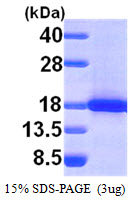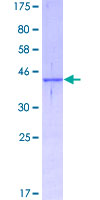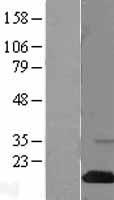order histories, retained contact details for faster checkout, review submissions, and special promotions.
Forgot password?
order histories, retained contact details for faster checkout, review submissions, and special promotions.
Location
Corporate Headquarters
Vector Laboratories, Inc.
6737 Mowry Ave
Newark, CA 94560
United States
Telephone Numbers
Customer Service: (800) 227-6666 / (650) 697-3600
Contact Us
Additional Contact Details
order histories, retained contact details for faster checkout, review submissions, and special promotions.
Forgot password?
order histories, retained contact details for faster checkout, review submissions, and special promotions.
SH2D1A / SAP
SH2 domain containing 1A
SH2D1A / SAP is a protein that plays a major role in the bidirectional stimulation of T and B cells. This protein contains an SH2 domain and a short tail. It associates with the signaling lymphocyte-activation molecule, thereby acting as an inhibitor of this transmembrane protein by blocking the recruitment of the SH2-domain-containing signal-transduction molecule SHP-2 to its docking site. This protein can also bind to other related surface molecules that are expressed on activated T, B and NK cells, thereby modifying signal transduction pathways in these cells. Mutations in this gene cause lymphoproliferative syndrome X-linked type 1 or Duncan disease, a rare immunodeficiency characterized by extreme susceptibility to infection with Epstein-Barr virus, with symptoms including severe mononucleosis and malignant lymphoma. Multiple transcript variants encoding different isoforms have been found for this gene.
| Gene Name: | SH2 domain containing 1A |
| Synonyms: | SH2D1A, LYP, IMD5, SH2 domain protein 1A, SH2 domain containing 1A, XLP, XLPD, DSHP, Duncan disease SH2-protein, EBVS, Lymphoproliferative syndrome, SAP, SLAM-associated protein |
| Target Sequences: | NM_002351 NP_002342.1 O60880 |






If you do not find the reagent or information you require, please contact Customer.Support@LSBio.com to inquire about additional products in development.










